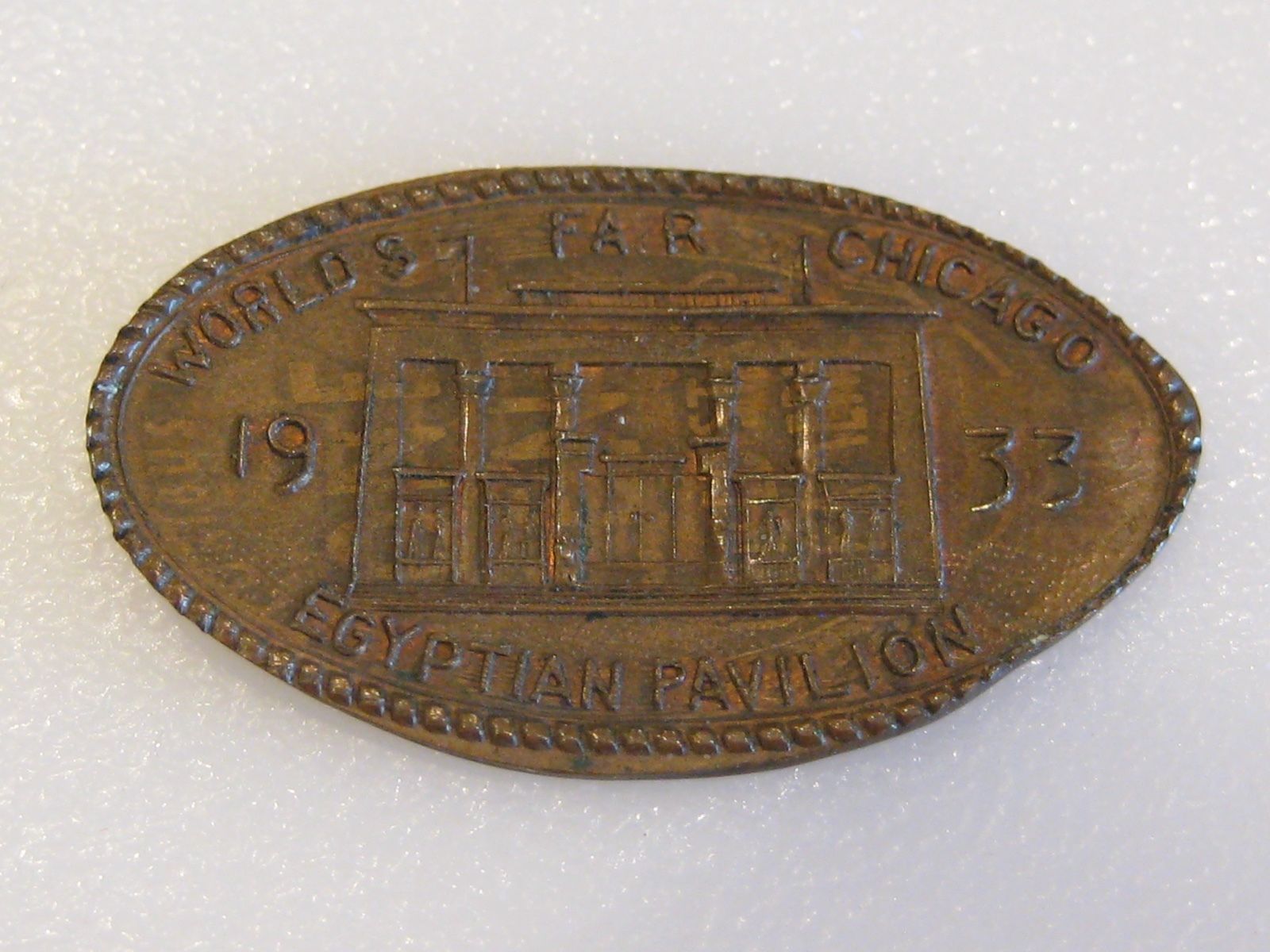Chicago's 1933 World's Fair: Celebrating The Century Of Progress

Table of Contents
The Fair's Inspiring Theme and Context
The 1933 Chicago World's Fair was more than just an exhibition; it was a statement of resilience and optimism in the face of adversity. Held during the Great Depression, a period of immense economic hardship for the United States, the fair served as a powerful symbol of hope and national pride.
Overcoming the Great Depression
The fair played a crucial role in boosting morale and providing a much-needed economic stimulus.
- Job creation: The construction and operation of the fair provided thousands of jobs, offering crucial employment during a time of widespread unemployment.
- Showcasing American ingenuity: The exposition demonstrated American innovation and technological prowess, reminding the nation of its capabilities.
- Attracting tourists to revitalize the city: The fair drew millions of visitors, injecting much-needed revenue into Chicago's economy and boosting tourism.
The psychological impact of the fair cannot be overstated. In a nation grappling with economic uncertainty, the dazzling lights, innovative exhibits, and sense of community fostered at the fair provided a much-needed escape and a renewed sense of optimism for the future. The Chicago World's Fair of 1933 became a symbol of hope, demonstrating that even in the darkest of times, progress was still possible.
Celebrating Technological Advancements
The 1933 World's Fair was a showcase of cutting-edge technology, many of which would soon become staples in American homes.
- Early television: Visitors experienced the nascent technology of television, providing a glimpse into the future of entertainment.
- Air conditioning: The fair featured early models of air conditioning, a technology that would revolutionize comfort and living standards.
- Streamlined architecture: The fair's buildings exemplified the Art Deco style and the "streamlined moderne" aesthetic, reflecting a fascination with speed and efficiency.
- Electric appliances: Numerous exhibits featured the latest in electric appliances, showcasing advancements in home technology.
These technological advancements showcased at the Century of Progress International Exposition significantly impacted everyday American life in the following decades, shaping modern conveniences and lifestyles.
Architectural Wonders and Design Innovations
The architecture of the 1933 Chicago World's Fair remains a significant contribution to the world of design. Its innovative and ambitious structures, though intended to be temporary, left a lasting impact.
The "Temporary" City
Designed to be temporary, the structures of the fair nonetheless demonstrated impressive architectural ambition and innovation.
- The iconic Sky Ride: This elevated transportation system offered breathtaking views of the fairgrounds and the city.
- The Hall of Science: This impressive structure housed exhibits demonstrating scientific advancements.
- The Travel and Transport Building: This showcased advancements in transportation technology.
- The theme of "modernism": The fair embraced modern design principles, showcasing the latest architectural styles.
Key architects contributed to the fair's design, incorporating the prevailing Art Deco style and contributing significantly to the development of modern architecture. The overall aesthetic of the fair played a significant role in shaping the visual landscape of the city.
A Lasting Architectural Legacy
The design innovations of the Chicago World's Fair left a lasting legacy on subsequent architectural trends.
- Influence on later World's Fairs: The fair's success and architectural innovations influenced the design of future world's fairs.
- The adoption of streamlined styles in buildings: The fair's "streamlined moderne" aesthetic became influential in the design of various structures across the nation.
- The legacy of the fairgrounds' location: The location of the fairgrounds has a continued significance within the city, leaving a lasting mark on the urban landscape.
While most structures were demolished after the fair closed, the overall design and planning significantly impacted subsequent architectural projects and city planning.
Cultural Impact and Entertainment
Beyond the technological and architectural marvels, Chicago's 1933 World's Fair offered a vibrant array of entertainment and served as a platform for social commentary.
Entertainment and Attractions
The fair provided a wide array of entertainment options, attracting a massive audience.
- Music: Various musical acts and performances entertained fairgoers.
- Theatre: Theatrical productions and showcases entertained visitors.
- Exhibits: A vast range of exhibits covered various themes, captivating visitors with innovation and knowledge.
- Amusement park rides: Thrill rides added to the festive and engaging atmosphere.
Many notable performers and events took place during the fair, adding to its cultural significance.
Social and Cultural Significance
The 1933 World's Fair wasn't merely a technological and artistic showcase; it also reflected the social and cultural dynamics of its time.
- Racial and gender dynamics of the time: The fair reflected, both implicitly and explicitly, the social inequalities prevalent during the era.
- Social commentary presented in exhibits: Certain exhibits subtly or overtly addressed pressing social issues.
The fair provided a platform to discuss these issues, even if only indirectly, making it a significant social and cultural event in addition to its technological and architectural achievements.
Conclusion
Chicago's 1933 World's Fair, "A Century of Progress," stands as a testament to human resilience, innovation, and the enduring power of hope. From overcoming the challenges of the Great Depression to showcasing groundbreaking technological advancements and architectural marvels, the fair left an indelible mark on Chicago and American culture. Its lasting impact is evident in its influence on subsequent World's Fairs, architectural trends, and its enduring place in the city's history. The fair's legacy reminds us of the capacity for progress even in times of hardship.
Learn more about this fascinating chapter in Chicago history! Dive deeper into the legacy of Chicago's 1933 World's Fair and discover the stories behind the "Century of Progress." Explore further resources and visit the remaining traces of this iconic event. Relive the magic of Chicago's 1933 World's Fair – a testament to human resilience and innovation.

Featured Posts
-
 Global Cities And The Perils Of Dangerous Climate Whiplash A Report Summary
May 28, 2025
Global Cities And The Perils Of Dangerous Climate Whiplash A Report Summary
May 28, 2025 -
 Late Match Jitters Sinners Paris Masters Triumph
May 28, 2025
Late Match Jitters Sinners Paris Masters Triumph
May 28, 2025 -
 Taylor Swift And Beyonce 2025 American Music Award Nominations
May 28, 2025
Taylor Swift And Beyonce 2025 American Music Award Nominations
May 28, 2025 -
 Global Etki Cristiano Ronaldo Nun Marka Guecuenuen Analizi
May 28, 2025
Global Etki Cristiano Ronaldo Nun Marka Guecuenuen Analizi
May 28, 2025 -
 Meilleur Prix Samsung Galaxy S25 512 Go 5 Etoiles 985 56 E
May 28, 2025
Meilleur Prix Samsung Galaxy S25 512 Go 5 Etoiles 985 56 E
May 28, 2025
